Does your skin still feel parched no matter how many products you slather on? True hydration, the secret behind that vibrant, youthful look, starts from within. Hydrated skin is healthy, resilient, and naturally radiant.
This guide offers 10 expert tips for natural skin hydration. We’ll cover how to enhance your water intake, select effective natural moisturisers, and protect your skin from the elements. Whether you’re dealing with dry skin or just want to boost your glow, these practical strategies will help you maintain beautiful hydration every day.
Are you ready to unlock the secret to dewy, glowing skin? Let’s get started!
10 Essential Hydration Tips to Keep Your Skin Hydrated and Glowing Naturally
1# Stay Well-Hydrated
Drink Up for Plump Skin: It’s not just about the creams and serums; hydrating your skin starts from within. Aim for 3-4 litres of water a day to keep your skin plump and elastic. This helps your skin cells retain moisture and stand up to environmental stress.
Make Drinking Water Fun:
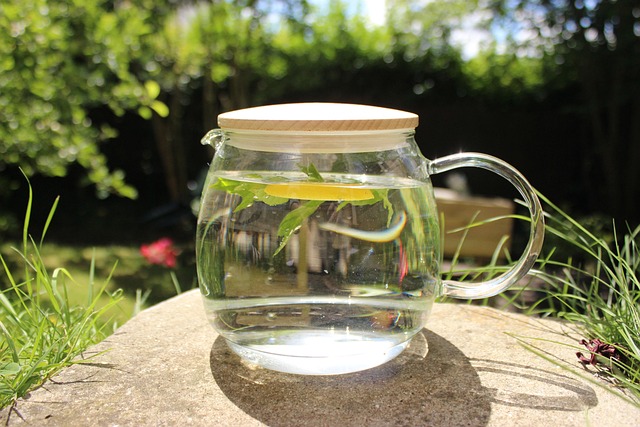
- Infuse It: Drop slices of cucumber, lemon, or berries into your water. This not only improves the taste but also adds skin-loving antioxidants.
- Eat Your Water: Boost your intake of water-rich fruits and veggies like watermelon, cucumber, oranges, and celery. These foods are packed with water and essential nutrients, helping hydrate your skin from the inside out.
Also Check – How to Keep Myself Hydrated: 10 Essential Hydration Hacks Every Woman Should Know
2# Moisturise Regularly
Lock In That Moisture: While hydrating from the inside out is key, don’t forget about the outside. Using a high-quality moisturiser helps seal in moisture and shields your skin from daily pollutants and toxins.
Look for Key Ingredients:
- Glycerin: This humectant pulls moisture from the air right into your skin.
- Hyaluronic Acid: It can hold up to 1,000 times its weight in water, deeply hydrating and rejuvenating your skin.
- Ceramides: These strengthen your skin’s barrier, locking in moisture and preventing dryness and irritation.
Try Natural Remedies:
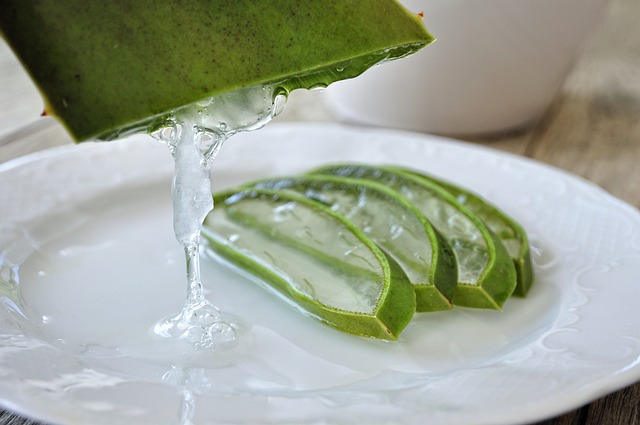
- Aloe Vera Gel: For a non-greasy hydration boost, apply aloe vera gel directly from the plant to your skin.
- Coconut Oil: Rich in fatty acids, it’s ideal for nighttime use. Smooth a thin layer under your moisturiser for added hydration.
3# Keep Showers Short and Sweet
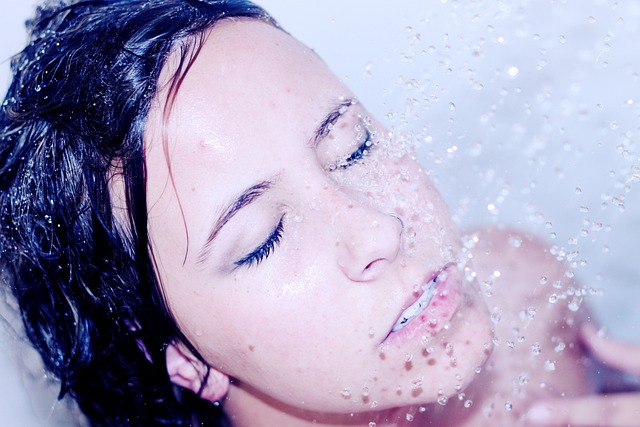
Avoid Long, Hot Showers: They might be soothing, but hot showers can strip your skin of essential natural oils. This can leave your skin less hydrated and less supple.
Shower Smart:
- Time Limit: Keep your showers between 5-10 minutes and use lukewarm water.
- Trap Humidity: Shut the bathroom door while showering. This increases the room’s humidity, helping your skin absorb more moisture.
- Pat Dry: After your shower, gently pat your skin dry with a soft towel rather than rubbing. Rubbing can irritate and further dry out your skin.
- Moisturise Right Away: While your skin is still slightly damp, apply a moisturiser. This helps to lock in moisture and can significantly enhance your skin’s hydration levels.
4# Choose Gentle Cleansers
Preserve Your Skin’s Natural Defences: The cleanser you use can significantly impact your skin’s health. Avoid harsh, abrasive cleansers that strip away moisture and weaken your skin’s barrier, which can lead to dehydration and irritation.
Opt for Mild Options:
- Low pH and Soap-Free: Choose mild, soap-free cleansers with a low pH to keep your skin gentle and hydrated.
- Hydrating Ingredients: Look for cleansers that include glycerin or ceramides. These ingredients help maintain your skin’s moisture balance.
Try Natural Cleansers:
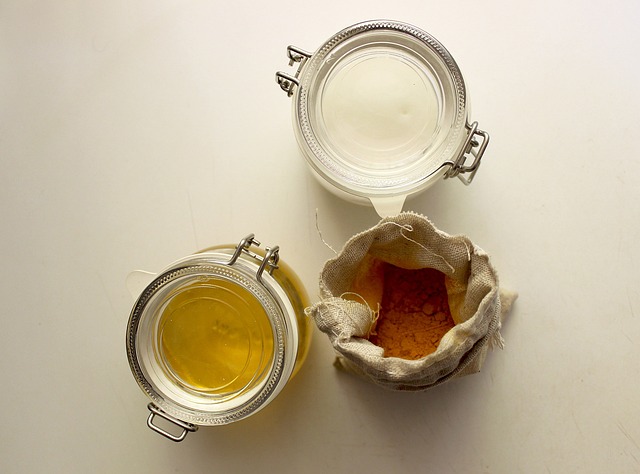
- Honey and Yogurt Face Wash: Combine 1 tablespoon of raw honey with 2 tablespoons of plain yoghurt. Honey naturally moisturises and fights bacteria, while yoghurt calms the skin. Apply in circular motions and rinse with lukewarm water.
- Oatmeal Cleanser: Oatmeal is perfect for sensitive skin. Mix fine-ground oatmeal with water to make a paste. Apply gently in circular motions and rinse. This natural option cleanses without drying out your skin.
5# Humidify Your Living Space
Boost Indoor Humidity: Maintaining the right humidity level at home is essential, especially in dry areas or rooms with heating or air conditioning, which can draw moisture from your skin.
How to Add Moisture:

- Use a Humidifier: Place a humidifier in areas where you spend a lot of time, like your bedroom, to add moisture to the air. This can help keep your skin hydrated and prevent dryness and irritation.
- Grow Indoor Plants: Plants like spider plants, peace lilies, and areca palms not only enhance room humidity naturally but also purify the air.
Extra Tips for Hydration:
- Place Water Basins: For an added humidity boost, place basins of water near heat sources. The water evaporates and increases room humidity. Just make sure they’re placed safely to avoid any hazards.
6# Limit Exfoliation
Exfoliate Wisely: While removing dead skin cells is crucial for fresh, glowing skin, over-exfoliation can strip away your natural barrier, increasing moisture loss and skin sensitivity.
How to Exfoliate Properly:
- Frequency: Limit exfoliation to once or twice a week. Watch how your skin responds and adjust as needed.
- Choose Gentle Exfoliators: Use products with natural exfoliants like jojoba beads or enzymes. These ingredients help remove dead skin gently without causing harm.
Natural Exfoliation Options:
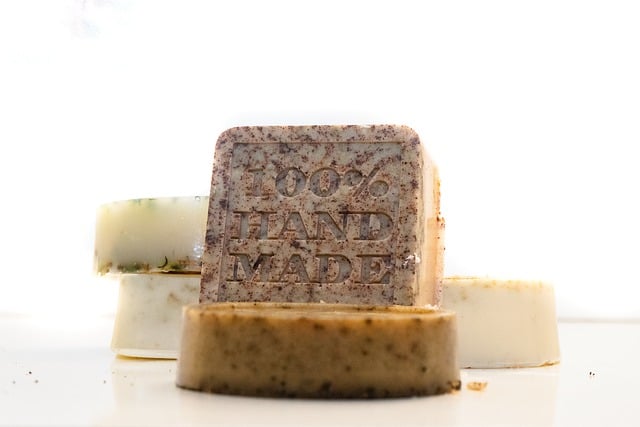
- DIY Oatmeal Scrub: For a soothing exfoliation, mix finely ground oatmeal with honey and a little water. Oatmeal calms the skin, and honey offers hydration and antibacterial benefits.
- Coffee and Oil Scrub: Combine ground coffee with a carrier oil like coconut or olive oil. This scrub is great for the body, stimulating blood flow while moisturising.
7# Avoid Harsh Skincare Ingredients
Choose Your Products Wisely: Sometimes, the products designed to beautify can cause more harm than good. Many skincare items contain harsh chemicals that might strip your skin of its natural oils and upset its balance.
Ingredients to Avoid:
- Sulphates: Often found in cleansers and shampoos, these can remove too much oil, leaving your skin dry.
- Simple Alcohols: Ingredients like ethanol or isopropyl alcohol can excessively dry out your skin.
- Fragrances and Parabens: These can irritate your skin, causing dryness and impacting natural hydration levels.
Natural Alternatives:
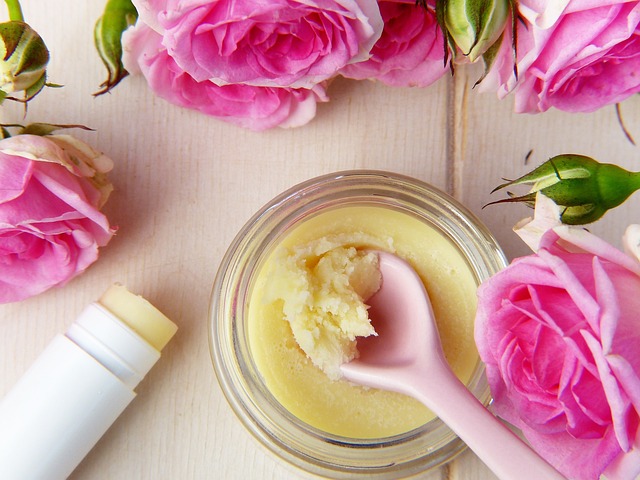
- Use Natural Moisturisers: Opt for natural oils and butters, like shea butter or jojoba oil, which hydrate without negative effects.
- DIY Skincare: Create your own simple, chemical-free products. For example, mix aloe vera gel with almond oil for a gentle, hydrating moisturiser.
8# Cut Back on Alcohol and Caffeine
Manage Fluid Loss: Alcohol and caffeine can dehydrate you by increasing fluid loss. This isn’t just bad for your body; it’s tough on your skin too.
Tips to Reduce Their Impact:
- Moderation Matters: Aim to limit your intake to one or two drinks per day.
- Stay Hydrated: Match every cup of coffee or alcoholic drink with an equal amount of water. This helps counteract dehydration.
- Hydrating Alternatives: Swap some of your regular drinks for herbal teas or flavoured waters, which hydrate rather than dehydrate.
For Those Cutting Down:
- Herbal and Fruit Teas: These are excellent, hydrating alternatives that offer various health benefits.
- Mocktails: Keep the fun but skip the alcohol. Try non-alcoholic cocktails with hydrating ingredients like cucumber, mint, and citrus.
Also Check – Morning Routine Success -Simple Secrets to a Successful Routine
9# Protect Against Extreme Weather
Adapt Your Skincare with the Seasons: Your skin’s hydration needs change with the weather, so it’s crucial to adjust your skincare routine accordingly.
Cold Weather Tips:
- Use Richer Moisturisers: Ingredients like shea butter or lanolin help combat the drying effects of cold, harsh winds and indoor heating.
- Don’t Forget Protection: Regularly apply lip balm and hand cream to prevent dryness. Layering a hydrating serum under your moisturiser can also boost skin hydration.
Hot Weather Tips:
- Lighter Lotions: Swap to lighter moisturisers and ramp up your SPF to protect against sun exposure, which can increase moisture loss.
- Soothing Ingredients: Look for products with aloe vera to soothe and hydrate sun-stressed skin. Wearing protective clothing and hats will further shield you from UV rays.
DIY Hydrating Mist:
- Make Your Own: For a cooling treat, steep green tea, mix it with equal parts rosewater, and store in a spray bottle in the fridge. Spritz on your face throughout the day for an instant hydration boost.
10# Seek Professional Advice
Consult a Dermatologist: If your skin remains dry and dehydrated despite your best efforts, it might be time to see a dermatologist. Persistent issues can sometimes signal deeper health concerns.
Benefits of Professional Help:
- Personalised Skin Care: A dermatologist can offer tailored advice and treatments specific to your skin type and concerns.
- Advanced Treatments: For tougher cases, professionals might recommend stronger moisturisers or procedures like hyaluronic acid injections for deep hydration.
- Learn and Empower: Understanding your skin’s unique needs helps you make informed decisions about your skincare routine.
Closing Thought: Hydrated skin is healthy skin. With these ten practical tips, you’re well on your way to a radiant complexion. Remember, every little step counts, from the water you drink to the moisturiser you apply. Stay committed to your skincare goals, and enjoy the journey to a glowing, vibrant look.
Stay hydrated, stay radiant!

Leave a Reply